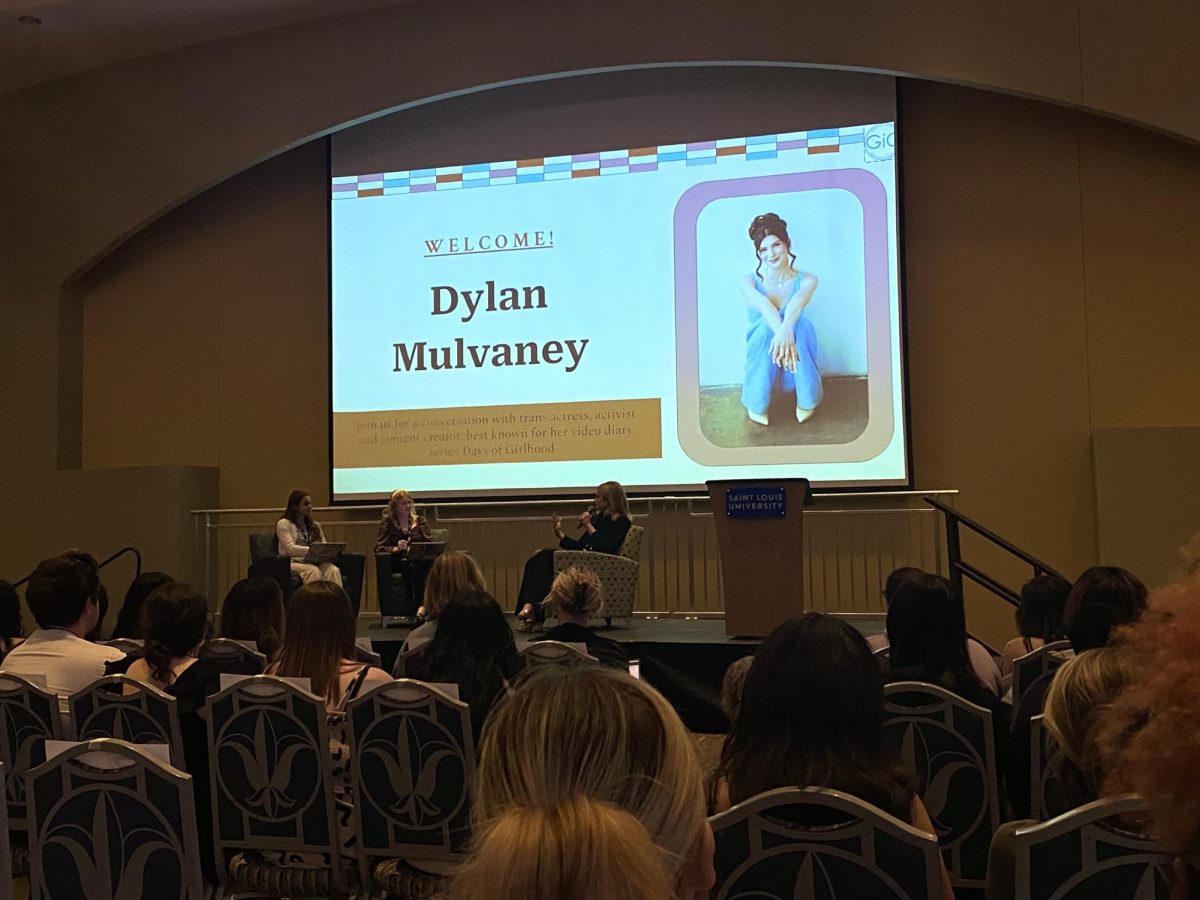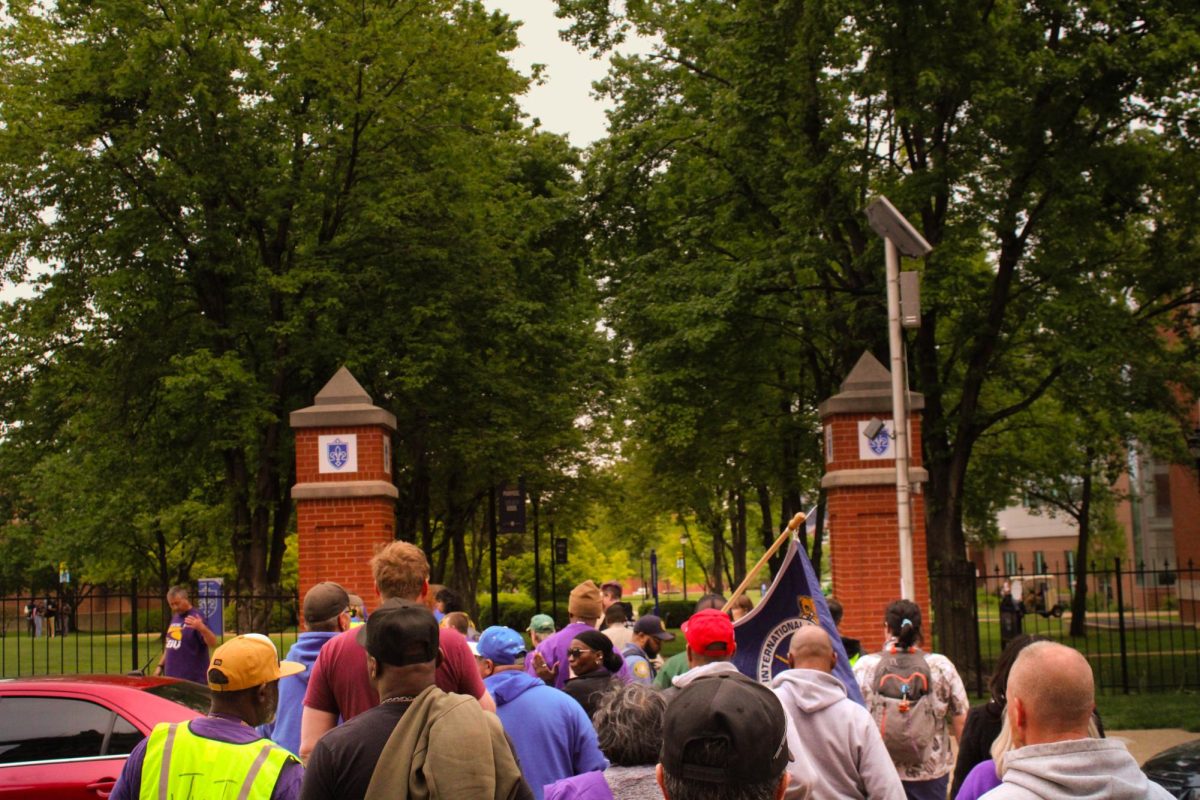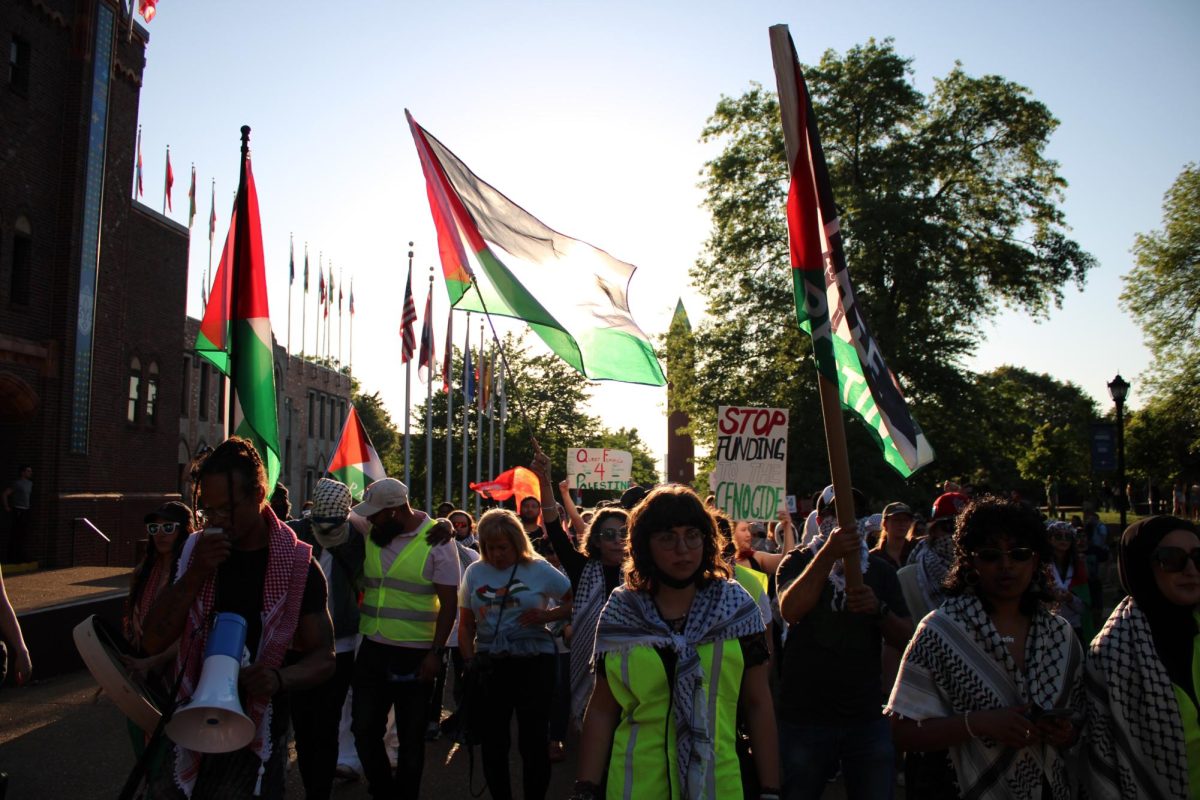The Saint Louis University community gathered Monday to honor the late Pope John Paul II in a memorial Mass held at noon in St. Francis Xavier College Church.
Despite the historical importance of the event-as this is the only pope the students of SLU have ever known-the College Church was no more populated than it would be for a typical 10 p.m. Mass on Sunday, due to the fact that many students were obligated to be in class at the time. Pope John Paul II, the first Polish pope and the first non-Italian pope in some 455 years, died on Saturday at the age of 84 after 26 years as pontiff of the Roman Catholic Church.
"Together, with the rest of the church, and…with the rest of the world, we grieve his death," said celebrant Barney Barry, S.J., during the homily.
Barry was flanked by University President Lawrence Biondi, S.J., and eight other concelebrants as he presided over the Mass, which included readings that were specifically chosen to celebrate the life and works of Pope John Paul II.
The gospel reading, taken from Matthew, was the same gospel that the Holy Father read before 110,000 people at the Mass held on Jan. 27, 1999 in the TWA Dome, now the Edward Jones Dome, during his pastoral visit to St. Louis.
During the homily, Barry outlined the countless achievements of Pope John Paul II, who "traveled 750,000 miles, to every continent," and who visited 38 heads of state, making him the most-traveled pope in history.
Barry called Pope John Paul II the "first global spiritual leader" and a "pioneer in inter-religious dialogue," citing that he "issued more encyclicals than all of his predecessors combined."
Barry spoke of his two encounters with the pope, first at the 1993 World Youth Day in Denver, and then in St. Louis in 1999.
"I knew both times I was in the presence of a giant," Barry said. "I felt closer to God because of my contact with the Holy Father."
In harmony with many different voices speaking on the memory of Pope John Paul II since his death, Barry said that no matter whether one agreed or disagreed with the pope, "everybody respected and admired this man."
In the final days of his life, Pope John Paul II "taught us how to bear our sufferings as Christ. He taught us how to die," Barry said.
News of the pope's death reached St. Louis just after 2 p.m. on Saturday. The Loyola Center for Campus Minsitry finalized the plans for the memorial Mass on Sunday afternoon, which did not leave enough time for them to file a formal request with the Office of the Provost for the cancellation of classes, a representative of campus ministry said.
Although classes were not canceled during the time the Mass was held, many students chose to skip class in order to attend the celebration.
Among these students was sophomore Brian Barker, a Protestant who saw Pope John Paul II as an important spiritual leader for people of all faiths.
"I felt that [missing class to attend the memorial Mass] was something I needed to do to honor a person who was a guiding light in the Christian faith, and to so many in the world," Barker said. "It's more important than going to class."
Junior Brian Strassburger, also present at the Mass, thought that classes should have been canceled to give all students the opportunity to join in honoring the pope.
"There should have been thousands of people there," he said. "All of Saint Louis University should have been there….there should have been people sitting in the aisles."
Karol Wojtyla, the man who would become Pope John Paul II, was born in Wadowice, Poland, in 1920. Strongly influenced by the romantic Polish poets of the 19th century, and a poet himself, Wojtyla studied Polish literature at the Jagellonian University in Krakow. During this time, he participated in underground theatrical performances of classic Polish works in an effort to continue the transmission of Polish language and culture, despite Hitler's intention to eradicate it.
Wojtyla joined an underground seminary in the diocese of Krakow in 1942 and was ordained in 1946. After earning a doctorate in philosophy from the Angelicum University in Rome, as well as a doctorate in sacred theology from the Jagellonian University, he joined the philosophy faculty at the Catholic University of Lublin in 1954, where he was appointed the chair of ethics, two years later.
Before being elected pope in 1978, Wojtyla served as the Archbishop and Cardinal of the diocese of Krakow. When he succeeded Pope John Paul I-who died only six weeks into his pontificate-Pope John Paul II, 58 at the time, was the picture of athleticism and vitality. He reached out to the young people of the world and invited them to faith, cultivating a youthful character in the Catholic Church.
Prior to his pontificate, Karol Wojtyla extensively explored philosophical anthropology in his writings, finding what it means to be a human by examining the phenomenology of action in "The Acting Person" (1969) and analyzing the human experience of love and sensuality as they relate to Christian ethics in "Love and Responsibility" (1960).
His philosophy forms the groundwork for the many encyclicals he issued as pope, including "Evangelicum Vitae-The Gospel of Life" (1995) which condemns abortion, euthanasia, the death penalty and assisted suicide. Throughout his pontificate, Pope John Paul II was a champion for the value and dignity of human life; he is also credited with playing a moral and symbolic role in squelching communism.
It was not until last year that the pope's public role became severely limited by illness. Although the Vatican never publicly acknowledged it until after his death, outside physicians speculated that the pope has suffered from Parkinson's disease for 15 years. His final struggle began on Jan. 31, when the Vatican announced that he had come down with the flu. After his final appearance at the window of the papal apartment on Wednesday, March 30, his condition deteriorated swiftly.
Students will continue to mourn the pope's death as they pray a nine-day novena with the rosary in Our Lady's Chapel, located in the lower level of the College Church. This began on Monday, April 4 and will take place at 4 p.m. daily, through Tuesday, April 12.
Members of the SLU community have the opportunity to enter their thoughts and prayers in a memorial book for Pope John Paul II, which was available at the Mass on Monday. The book has been moved to the Loyola Center for Campus Ministry in Wuller Hall, where it will remain until after the pope's burial on Friday, when it will be sent to the Vatican in Rome.
Accompanying the memorial book in the Loyola Center is a collection of books, magazines and pictures that chronicle the pope's life. Visitors may take prayer cards home with them from the display.
Campus ministry has also created a memorial Web site for Pope John Paul II, located at http://www.slu.edu/services/ministry/JohnPaul.html. The online tribute includes links to various biographical sites on Pope John Paul II and information on the upcoming papal transition.






